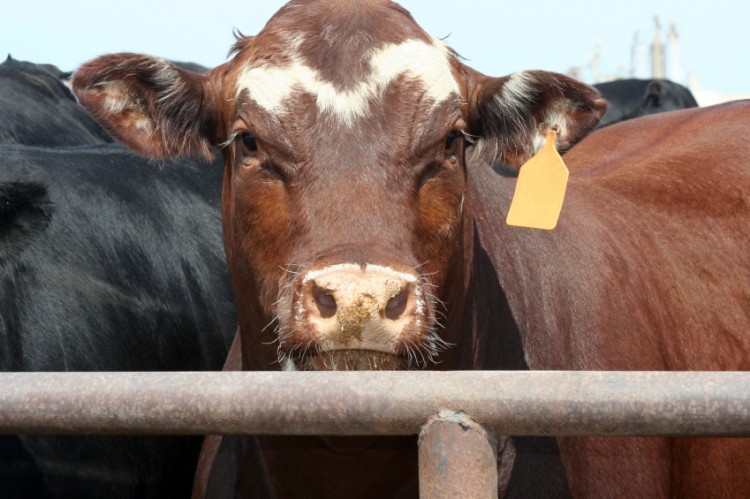EFSA weighs in on safety of beta agonist for cattle

However, the European Food Safety Authority (EFSA) said the observed effects in cattle could not be directly linked to the administration of zilpaterol at the recommended dose levels.
EFSA published its full opinion on the beta agonist on Friday 14 October. Previously, only the abstract was available.
Zilpaterol is used as a veterinary drug in cattle to enhance growth performance in a number of countries such as the US, Canada and Mexico, but it is prohibited in the EU. It is added at a concentration of 7.5 mg/kg feed corresponding to 0.15 mg/kg body weight (bow) per day for the last 20–40 days before slaughter of cattle.
Background to opinion
The EU Commission (EC) had asked EFSA to assist it in the preparation of the EU position for this week's meeting of the Codex Committee on Residues of Veterinary Drugs (CCRVDF).
The EC requested the Authority review the evaluation of zilpaterol by the 81st meeting of the Joint FAO/WHO Expert Committee on Food Additives (JECFA) and assess the available scientific literature to establish whether there are grounds for concern, in particular about the safety of products obtained from animals treated with the additive.
In 2013, animal well-being issues potentially linked to the administration of zilpaterol surfaced through news reports noting several cases of severe laminitis had been observed in animals treated with the substance.
Some meat producers like Cargill and Tyson Foods announced they would suspend the purchase of cattle treated with zilpaterol until further information was made available. Shortly afterwards, Merck, which sells a zilpaterol based beta agonist, announced it would temporarily suspend sales of the product.
EFSA’s review concluded: “In general, the approach followed by JECFA for setting MRLs for zilpaterol appears to be scientifically robust.”
However, the Authority said it should be noted most of the original study reports used by JECFA and the studies which lead to previous concerns by the industry on severe laminitis were not available to EFSA.
JECFA derived an Acute Reference Dose and an Acceptable Daily Intake of 0.04 mg/kg body weight (per day) based on neurological effects seen in humans and, after carrying out an exposure assessment, has recommended maximum residue limits (MRLs) for zilpaterol in cattle of 3.3 mg/kg in kidney, 3.5 mg/kg in liver and 0.5 mg/kg in muscle.
Literature review
EFSA said it reviewed the data used and the conclusions taken by the FAO/WHO Joint Expert Committee on Food Additives (JECFA) on zilpaterol at their 78th and 81st meetings.
In order to consider potentially relevant information on zilpaterol that became available after the compilation of the JECFA dossiers, the EU risk assessor said it also carried out a comprehensive literature search including information made available between 1 January 2012 and 9 June 2016.
EFSA’s review of the literature on the beta agonist noted:
- In response to the administration of zilpaterol at the recommended use level, the mortality of beef cattle increased from 0.3% to 0.5% in one large observational study. In other studies, however, mortality was not shown to be influenced by the supplementation of zilpaterol.
- Post-feeding heart rate increased as an effect of the administration of overdoses of zilpaterol to cattle.
- Respiration rates and panting scores may increase after administration of zilpaterol in cattle. In sheep, higher skin temperatures at the belly and the right flank were found, suggesting increased metabolism and increased heat production in the rumen as a result of zilpaterol supplementation.
- Mobility (including lameness) was not conclusively shown to be affected by zilpaterol administration in cattle.
- Administration of combinations of zilpaterol with other growth promoters in male cattle increased lateral lying and agonistic behavior. These effects are either due to zilpaterol alone or to an interaction of zilpaterol with the other growth promoters applied (common practice in the beef industry, where allowed). Because of this combined application, it is not possible to conclude that the effect is caused by zilpaterol alone.
















